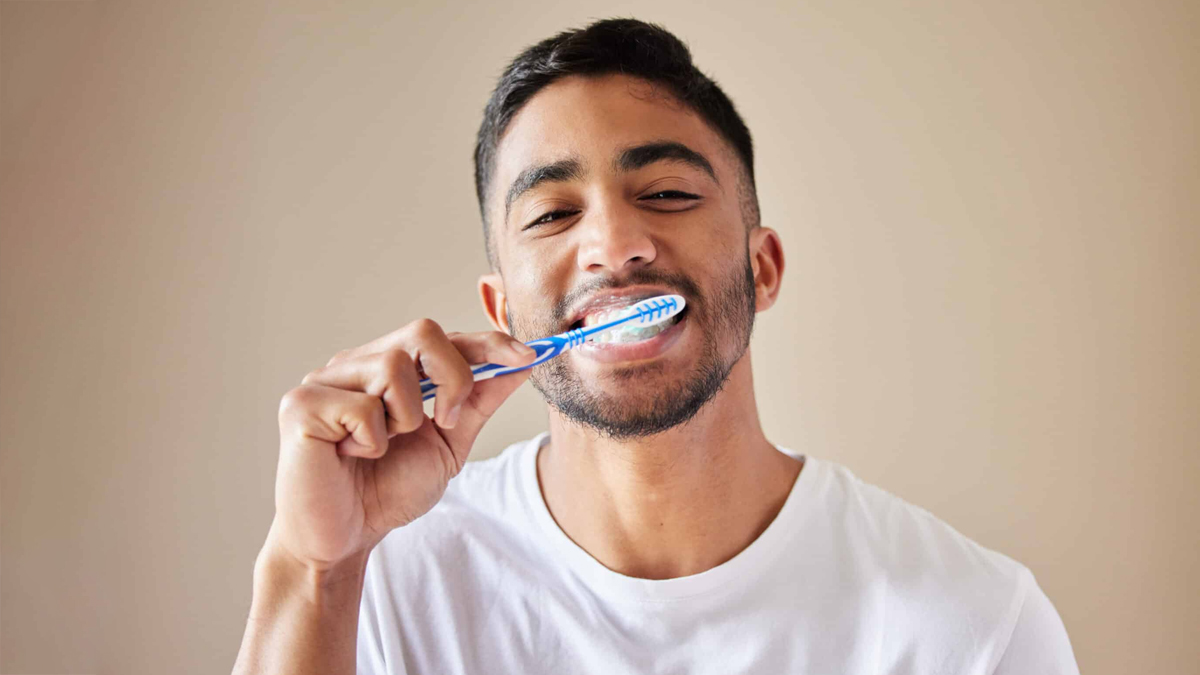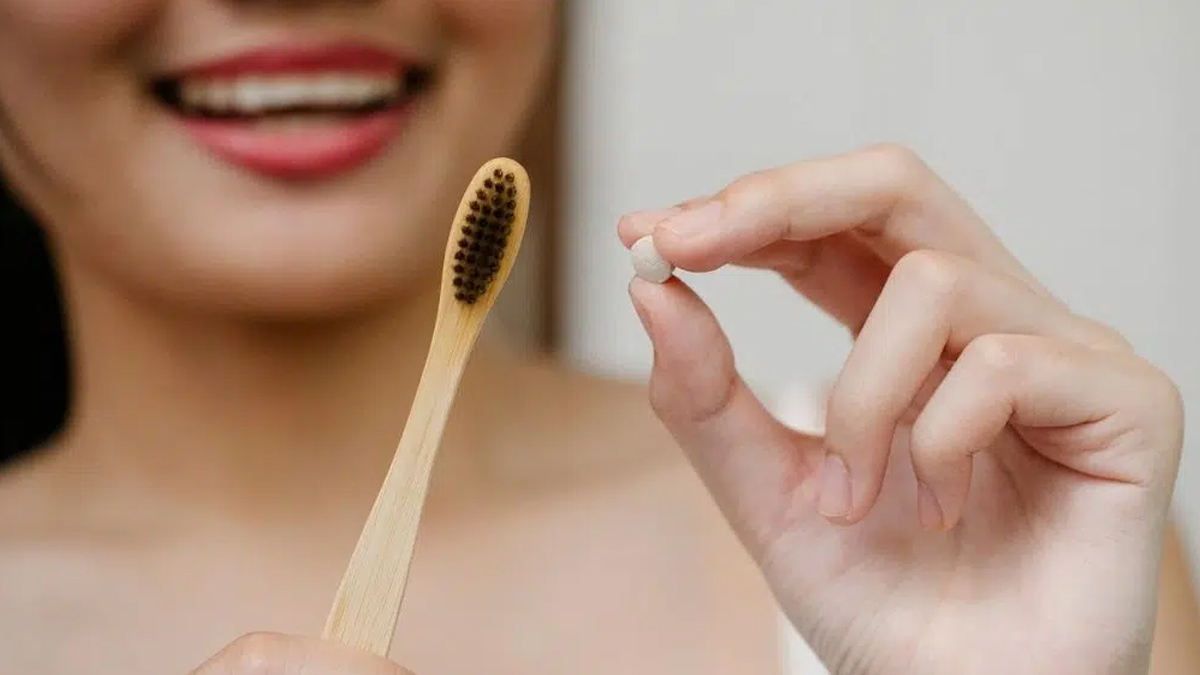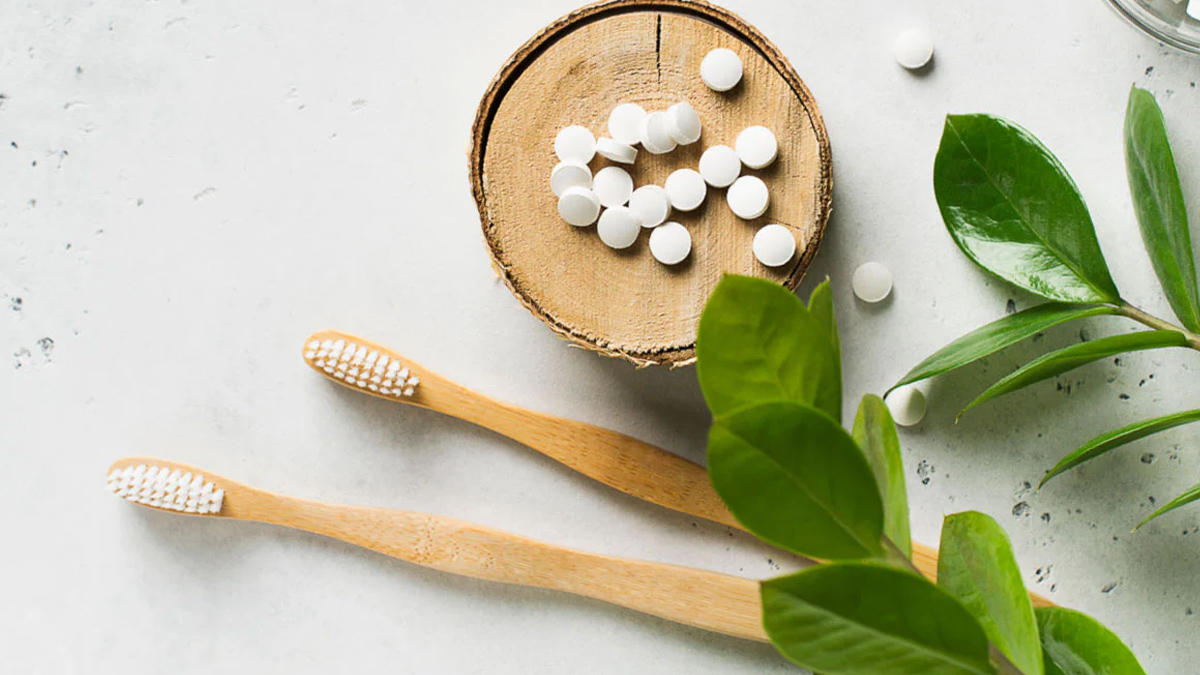-1750769203064.png)
Have you ever wondered if those new toothpaste tablets really work as well as the regular toothpaste you’ve used for years? Toothpaste tablets are becoming popular, especially for people who travel a lot or want to cut down on plastic waste. But do they clean your teeth as well as the classic paste in a tube? Read ahead to know as an expert shares about the differences in simple words, and see which one might be better for you.
Table of Content:-
What’s the Basic Difference?![Toothpaste Tablets vs Traditional Toothpaste 3 - 2025-06-24T163610.284]()
Dr Rajesh Koppikar, Consultant, Dental Surgery, Kokilaben Dhirubhai Ambani Hospital, Mumbai, explains, “As oral care continues to evolve, toothpaste tablets have emerged as a sustainable and travel-friendly alternative to traditional toothpaste. But how do they compare when it comes to effectiveness and daily use?”
Toothpaste tablets are small, solid tablets that you chew in your mouth before brushing. Traditional toothpaste is the gel or paste you squeeze from a tube onto your toothbrush. Tablets usually come in glass jars or compostable bags, so they are better for the environment. Most traditional toothpaste comes in plastic tubes, which often end up in landfills.
ALSO READ: Kishwer Merchant Takes Her Kids to Brush Together: Here’s How Parents Can Enhance Kids’ Gum Health
How To Use Toothpaste Tablets![Toothpaste Tablets 2 - 2025-06-24T163618.240]()
- To use a tablet, you pop one in your mouth, chew it, and then brush with a wet toothbrush.
- With regular toothpaste, you just squeeze some onto your brush and start brushing.
- Tablets have a longer shelf life because they don’t have water in them, so they don’t dry out or get contaminated as easily.
- Each tablet is the right amount for one use, but with paste, it’s easy to use too much.
The expert further adds, “Both formats can clean well if they have the right ingredients, especially fluoride. Fluoride is very important for preventing cavities. Traditional toothpaste usually has fluoride and has been used for many years. But well-made toothpaste tablets with fluoride can also keep your teeth clean, reduce plaque, and make your enamel stronger.”
Which One Cleans Better?![Traditional Toothpaste Tips 4 (71)]()
Both toothpaste tablets and traditional paste can clean your teeth well, if they have fluoride. Fluoride helps protect your teeth from cavities. Traditional toothpaste almost always has fluoride and is trusted by dentists. Some toothpaste tablets also have fluoride, but not all. Always check the label before buying.
Toothpaste tablets are great for people who travel, care about the environment, or like simple routines. Traditional paste is better for kids, people with sensitive teeth, or those who need special toothpaste (like for whitening or sensitivity).
Things to Watch Out For![Toothpaste Tablets 1 - 2025-06-24T163614.089]()
- Always check if your toothpaste or tablet has fluoride.
- Use tablets as directed. Chew, brush, and rinse. Do not swallow the tablet.
- Some tablets can be rougher on your teeth and may wear down enamel if used for a long time.
- Talk to your dentist before switching, especially if you have gum problems, braces, or dental work.
A study published in the International Journal of Dental Hygiene compared the cleaning power of toothpaste tablets and traditional paste. The study found that both types cleaned teeth well and reduced plaque, as long as they contained fluoride and were used with proper brushing technique.
ALSO READ: Do Toothpaste Tablets Really Work? Experts Weigh In on Their Oral Health Benefits
Conclusion
Toothpaste tablets and traditional paste can both keep your teeth clean and healthy if you use them the right way. The most important thing is to use a product with fluoride and brush your teeth properly. Choose the one that fits your lifestyle and needs. If you are not sure, ask your dentist for advice.
Also watch this video
How we keep this article up to date:
We work with experts and keep a close eye on the latest in health and wellness. Whenever there is a new research or helpful information, we update our articles with accurate and useful advice.
Current Version



-1750763617635.jpg)
